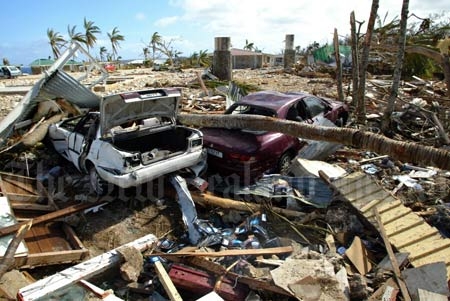THE “Nuku’alofa Declaration for Sustainable Weather and Climate Services for a Resilient Pacific” was endorsed by the first ever Pacific Ministers of Meteorology in Tonga in July. This is the first historic step towards strengthening Meteorological Services across the Pacific island region at such a high level and now that the winds of support have propelled the Meteorological Services this far, it is hoped the momentum will continue.
It has been estimated that since 1950, extreme events including events that are non weather related such as tsunami, have affected approximately 9.2 million people in the Pacific, with close to 10,000 reported deaths and damage to the value of US$ 3.2 billion. Over the last decade some Pacific islands have experienced natural disaster losses that have approached and in some cases, exceeded their Gross Domestic Product over a single year. For example, losses in Niue due to Cyclone Heta in Niue in 2004 amounted to over five times the 2003 GDP.
The vast majority of the 284 recorded disasters that occurred in the Pacific island region between 1950 and 2013 were caused by weather related events, especially severe storms. Both individually and collectively, these disasters have had enormous social, economic and environmental consequences. For those that experience them however, these extreme events are more than just statistics. This is at the core of work by the Pacific Meteorological Desk Partnership based at the Secretariat of the Pacific Regional Environment Programme (SPREP) – to help promote the role of the National Meteorological Services and their responsibility in saving lives during severe weather events.
…..to read more buy your personal copy at
